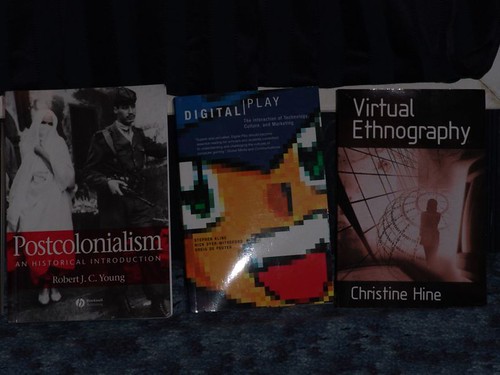As a young (and naive) undergraduate student in chemical engineering, I always believed in the power of interdisciplinarity. My brothers were all engineers (like me) but of different specializations: civil, mechanical, electrical. Our studies crossed paths because we shared some common coursework (and my brothers were always on hand to explain to me how to calculate heat exchangers, for example).
When I decided to undertake graduate work in the administrative sciences, I figured I had jumped ship on to “greener pastures”. Yet what I found in management science literature was that it borrowed from different disciplines to build its explanatory frameworks. My Masters’ thesis topic (understanding strategic alliances) used literature from the hard-core microeconomic and industrial organization fields (I built a game-theoretic approach to alliance-building). It also used scholarship from the economic sociology and anthropology bodies of work.
While fully confessing that my doctoral training was primarily in the political science (comparative politics of public policy) field, my other major field was human geography (specifically, business geography/industrial geography/economic geography/urban geography). At the same time, my former PhD supervisor was a physicist who turned to policy analysis (and thus he valued interdisciplinarity in scholarly work).
My doctoral dissertation built an interdisciplinary framework that borrowed from the policy sciences, economic geography, comparative politics, economic sociology and anthropology, in an integrated assessment of industrial clusters’ restructuring. To be quite honest, I love what I did with my dissertation, and its interdisciplinary nature. One of the challenges I have faced given that I have taught in a department of Political Science for the past 6-7 years is that I find political science sometimes a bit insular and guarded from approaching problems from a truly interdisciplinary perspective. This isn’t a problem specific to a department, but I think it is a reflection of how universities in Canada (and for the most part, from an anecdotal perspective, it looks like this is the case worldwide) approach interdisciplinary work: “we want you to be able to do interdisciplinary work, but your PhD needs to be in a specific discipline“. This approach, I think, precludes students and faculty members from really broadening their perspectives and learning from other disciplines.
I began a dialogue with other scholarship even before I graduated from my PhD, and I am grateful to my advisors (both Masters and PhD) for letting me engage in truly interdisciplinary work. The rewards from working beyond my traditional discipline (political science, in this case) are numerous, but unfortunately there is a big challenge: reading beyond individual disciplinary boundaries means that I spend a large (somewhat inordinate) amount of time keeping up-to-date with scholarship in all these fields. I have set up email alerts that send me tables of content from several journals in geography, economics, political science, public administration, sociology, history, and even in the chemical engineering, environmental engineering realms. But to truly stay on top of all these published journals is proving a big challenge.
I am wondering how other scholars approach this problem. Feel free to chime on the comments section.


This is indeed a challenge for the interdisciplinary scholar. I am often reading food studies, urban studies, sustainable development, and urban environment lit, and keeping up proved impossible. What Ido is keep up with the food lit, and then when I need to I give myself a crash course in the related fields on an as needed basis, as I can then use the magic of crowd filtering; if I return to sustainable development after a year, the crowd will have chosen the best half dozen new articles for me, and so I can concentrate on those. Still, it is a big challenge.